“When you read a book as a child, it becomes a part of your identity in a way that no other reading in your whole life does.”
Kathleen Kelly, You’ve Got Mail
Hello, hello. Over the last week, I've had a glut of new subscribers and to those folks: welcome! And to everyone else: thanks for sticking around!
Let's talk books.
Along with Kathleen Kelly, I believe that certain books become part of your identity. In fact, I'd go so far to say that the books you cherish, the ones you reread again and again, particularly those that captured your heart in childhood or adolescence, become building blocks of your character.
Perhaps this is true of other art forms. If you are a film buff, maybe you feel your favourite movie left its mark on you. I wouldn't know - my first love is, was, and always will be books. I was so enamoured with reading as a child that my father nicknamed me "bookmark".
Even with a terrifyingly rapidly shrinking attention span, I still adore reading and know no other activity that can open your mind and broaden your experience all while giving you a good time.
Here are the books that built me, that changed my life in some way. (I really have unleashed my inner bookworm so I apologise for the length and downright hysterical enthusiasm of this Substack.)
Read on to discover my life-changing books and please, please, please let me know in the comments what are the books that built you.
But first, a quick housekeeping note!
Guys, I have decided to turn on the 'paid' option for this Substack. I probably should have done this a long time ago but I was a bit all over the place in terms of how much I wrote on here and also, I suppose, felt anxious about asking people to consider paying for my writing.
As I'm sure you can tell, these Substacks take quite a bit of time, energy and work and so, if you appreciate them landing in your inbox and have the means to support this enterprise and me, I really would love you to consider becoming a paid subscriber at £6 a month or £60 for a year.
This Substack includes diaristic essays as well as pieces on books, relationships, wellness, travel, recommendations and ideas on how to do life right now. If you like that stuff, my writing and would like to support me, click below to do that. Thank you!
And now, back to our regularly scheduled programming…
The Magic Faraway Tree by Enid Blyton
Enid Blyton is so inextricably linked with my childhood that I can't really think of one without the other. Honestly, the landscape of my imagination as a child - midnight feasts, enchanted forests, boarding schools where all kinds of hijinks went down away from dull old grown-ups - is straight out of The Famous Five, Malory Towers and the rest of Blyton's astonishingly prolific oeuvre.
But it's The Magic Faraway Tree that first taught me the delight of reading and its potential of true transportation. When I read it, I truly believed that somewhere out there existed a forest with a tree with a different magical land at the top each week, that Moon-Face, Silky and Dame Washalot inhabited that tree, and there was a Slippery-Slip that would take you from the top to the bottom.
Reading as a child is close to magic - and reading The Magic Faraway Tree was close to a hallucinatory experience for me. Sadly that magic doesn't outlive childhood. I've never found a book as vivid, as 'real' as I found books I read as a child.
Case in point: I came across a beautiful edition of The Magic Faraway Tree a few years ago and immediately bought it. But when I settled down to read it, I was astonished to discover it wasn't the same book as the one stored in my memory - the wood wasn't as magical, the characters nowhere near as captivating. Of course the book hadn't changed, it's just that I had become a dull old grown-up, impervious to the imaginative wonder of childhood reading.
And that's why it's so important children read! You only get that one pocket of life where reading is akin to sorcery. So if you have a kid, please load up their shelves with Enid Blyton and Jacqueline Wilson and whoever else is the new Enid Blyton.
Close contender: Ballet Shoes by Noel Streatfeild
I Capture The Castle by Dodie Smith
You guys, this book.
Do you have that one book you cherish and wish you could experience reading for the first time once more, so much so that you are actually jealous of people who haven't read it yet because of the treat that awaits them? That is how I feel about this book.
The first sentence - "I write this sitting in the kitchen sink" - is forever lodged in my mind.
Cassandra, the narrator, lives with her very eccentric family - her beautiful sister Rose, her brilliant father who wrote a masterpiece years ago but has ever since been crippled by writer's block leaving the family penniless and living in a dilapidated castle (bear with me), her stepmother Topaz, a former model who every now and again strides naked into the night to "commune with nature". A pair of rich American brothers arrive in their corner of rain-soaked Suffolk and Cassandra and Rose manoeuvre to marry them and save the family from poverty. I know it sounds pretty rubbish but it's not!
The incredible thing about this book is the switcheroo that happens midway. The book could be divided in two. I'm not giving anything away but the first half is a fun, endearing caper with plenty of laugh out loud moments and the second half is about the agony of unrequited love. And it really is agony.
Dodie Smith - of 101 Dalmatians fame - wrote this novel during World War Two when she lived in California and was homesick for England. You can tell. Every page pulses with a longing for the English countryside.
(Interestingly the castle of the title was based on a house near where my parents live and I once went to an event there where the owner (a wealthy Londoner) gave a long talk about the history of the house and failed to mention I Capture The Castle ONCE. Have a little respect for your home's literary legacy, sir!)
But how did this book change my life? I think by teaching me a little about unrequited love - which sadly I have had some experience of - but mainly by providing me with a Class A comfort read. When people are ghastly, the world is rotten, outside is cold and dark and grim, I can open this book and be with Cassandra, in the kitchen sink.
Close contender: The Pursuit Of Love by Nancy Mitford
Sweet Valley High by Francine Pascal
Oh. My. God. I steamed through these books as a teenager.
Pascal (and her team of ghostwriters) apparently wrote 181 Sweet Valley High books and I am pretty sure I read every single one. Oh, the Wakefield twins, Jessica and Elizabeth, blonde and beautiful and Californian with lives full of drama - by the time we got to the Sweet Valley University series, there were kidnap plots and sex scenes and I was gripped.
These books get a spot on the list because they deepened my love of reading and offered escape. So what if it was a bit of a trashy escape? I was an awkward and self-conscious teen and I loved, for 200 or so pages, escaping into the lives of two confident, gorgeous, self-assured teenagers who ruled their all American high school.
And I wasn't alone. Pascal sadly died earlier this year but she knew the effect she had had on a whole generation of girls, many of whom became readers thanks to her addictive books. She said in one interview:
Everybody likes to think they are making a difference in this world. When I get a letter from a child saying that Sweet Valley has made her enjoy reading, I know I've done something important. And that is truly a wonderful feeling.
Close contender: Fearless series by Francine Pascal
Hamlet by William Shakespeare
I had to get a Shakespeare in here so you didn't think I was dumb.
No, really, I have a theory that the Shakespeare play you studied for A-Level will be your favourite Shakespeare play because when else are you going to get the luxury of six months pouring over one play? I'm thankful that I got Hamlet at A-level because it is the Bard's best, hands down.
I think of Hamlet the way Tom Hanks's character thinks of The Godfather in You've Got Mail. Hear me out. Hanks's character, Joe Fox, tells Kathleen Kelly (Meg Ryan's character who uttered the quote you find at the top of this Substack) that the whole of life is contained within the 1972 film. He says:
'The Godfather' is the I Ching. 'The Godfather' is the sum of all wisdom. 'The Godfather' is the answer to any question.
Well, that's how I feel about Hamlet! All of life is squished into that play, in that beautiful language, all you have to do is delve in and find it.
Here's my favourite line:
There are more things in heaven and earth, Horatio, / Than are dreamt of in your philosophy.
It swims into my mind surprisingly often, particularly when some smart arse is trying to pour scepticism on my belief that ghosts probably do exist - there are more things in Heaven and earth than are dreamt of in your philosophy, ok?!
I love this play so much that I once developed a crush on a guy because, as I told my friends, and I quote, "He reminded me of Hamlet". If the fact that a play written 400 years ago is influencing crushes today doesn't speak to the life-changing power of literature, I don't know what does.
Close contender: I don't think any of the other plays come close but Midsummer Night's Dream is a vibe
The Bell Jar by Sylvia Plath
This is a fucking brilliant book and also a dangerous one. I haven't read it for years because I'm too frightened. The Bell Jar is such an accurate, persuasive description of depression slowly overwhelming a young woman that it is somehow contagious. If you are feeling the tiniest bit blue when you start reading this book, well, Plath will tip you right over the edge.
But God it's a work of genius. Like so many of the books on this list, it's got a killer opening line:
It was a queer, sultry summer, the summer they electrocuted the Rosenbergs, and I didn't know what I was doing in New York.
I get chills just reading it. So many of this book's images and words are lodged in my mind - the most famous of which is probably this one:
I saw my life branching out before me like the green fig tree in the story. From the tip of every branch, like a fat purple fig, a wonderful future beckoned and winked. One fig was a husband and a happy home and children, and another fig was a famous poet and another fig was a brilliant professor... I saw myself sitting in the crotch of this fig tree, starving to death, just because I couldn't make up my mind which of the figs I would choose. I wanted each and every one of them, but choosing one meant losing all the rest, and, as I sat there, unable to decide, the figs began to wrinkle and go black, and, one by one, they plopped to the ground at my feet.
Who hasn't felt that paralysis? That narrowing of the road with each decision made that stops you making any until you are sitting powerless, watching promising futures fall to the ground like rotten figs?
What makes this book so brilliant and so terrifying is how it situates you, the reader, right under the bell jar - Plath's metaphor for depression - with Esther (the protagonist). As she begins to see no point in living, you find yourself agreeing with her.
This one is on the list because it pulls off something none of the other books do: it makes you go through something. I do not believe you finish The Bell Jar the same person you started it. In the words of someone from Reddit (which is where you'll find the best literary criticism, guys):
It felt like the book was reading me instead of me reading the book... I think it was a great book but I'll probably never read it again.
Close contender: The Catcher In The Rye by J D Salinger
White Teeth by Zadie Smith
If The Bell Jar was depression, this is JOY. Oh, this book. Oh, Zadie. Oh, White Teeth, you beauteous, beauteous thing.
I read this when I was in sixth form and I still remember how eye-popping I found it. She didn't even write in grammatical sentences! The first line was: "Early in the morning, late in the century, Cricklewood Broadway." There's not a verb in that sentence! And then, on the second page, is an actual swear word.
White Teeth was the first book I had ever read which showed the world as I knew it but had not yet seen on the page. Up until White Teeth, books were full of Edwardian ladies with fussy manners or American teenagers with tans I didn't have. But Zadie Smith served up the London I knew, the city I had grown up in, only with the volume twiddled up and the colour saturation on high.
What a book - what a funny, generous, boisterous book. You can tell when a novelist is having the time of their life writing a novel and that's the case with White Teeth. Yes, it goes haywire three quarters of the way through when dear Zadie loses control of her creation and we're just along for the ride but, without doubt, one of the greatest books of our time and she is, in my opinion, the very best writer of my lifetime. There, I said it, and it is not up for discussion.
Close contender: On Beauty by Zadie Smith (this is a Zadie Smith only category, contenders written by anyone other than Zadie Smith are not allowed)
In Cold Blood by Truman Capote
I went through a Capote obsession. I don't know that I've ever struggled free from it. I read all his books, his biography, watched the films made about him, and even trudged over to Brooklyn in the dark on my first visit to New York to pay pilgrimage to his house.
I feel a real affection for him that somehow goes beyond his writing. He was such a larger than life character - with his “swans” (the glamorous, super rich women he befriended who dropped him when he wrote about them), his black-and-white ball (kinda like the Met gala but more literary and more scandalous), his childhood friendship with Harper Lee that landed him with his own character in To Kill A Mockingbird - but he also seemed like such a vulnerable person, scarred by a tumultuous terrifying childhood and ravaged with addiction. He was also downright fun. For example: he caused a hullabaloo when he published his first novel (at the sickeningly young age of 23) because he flashed bedroom eyes in his author portrait. I mean, goals.
But In Cold Blood changed my life because it showed me what was possible with journalism. With that book, Capote invented what he called the "nonfiction novel". He went to a small town in Kansas and grew close to two men who had been arrested for the murder of a family. He turned that reportage into a book that reads like the very best novel - and I'd argue kicked off our current obsession with true crime.
It also finished him off. He never wrote another book after his grand opus - some say because he believed he had betrayed one of the killers, Perry, who he had felt a kinship with, by prioritising his book over fighting Perry's death penalty.
Zadie Smith provided one of my favourite descriptions of Capote when she reviewed the movie about his life:
When people rail against the 'media', the bogeymen they have in mind owe not a little to the spectre of Truman Capote. What is a writer? He knocks on your door with a smile, a pen and a shard of ice in his heart.
I have sometimes felt, when doing what newspaper people call a "door-knock" or some other interview expedition, that shard of ice in my heart.
Close contender: Empire Of Pain by Patrick Radden Keefe
Allen Carr's Easy Way To Quit Vaping
Here’s the rogue book on the list because I didn't particularly enjoy reading it, I don't think it's well written - in fact I found it boring and repetitive - yet I cannot deny that it changed my life.
I have had a very long relationship with nicotine, in many, many guises: cigarettes, patches, rollies, gum, and finally, the sweetly delicious vape. This relationship spanned 20 years (gulp) and in all honesty, I doubted that I would ever be nicotine-free.
All that changed in August 2022 when I read this book, puffing away on my Peach Ice Elf Bar, then solemnly threw it in the bin as directed when I finished the book and, wonder of wonders, I HAVE NOT IMBIBED NICOTINE SINCE. That's over two years vape-free, baby.
There were some other things at play: I was *finally* over the vape, bored of my dependence and ready to stop, and I also believed I could stop for the first time, after seeing a close friend who was similarly addicted give up.
But this book really helped. It dismantles the delusion that all smokers and vapers labour under - that they need nicotine, that their lives will be harder and less comfortable without it - and just, well, brainwashes you into quitting, I guess. (I've written in more detail about finally kicking the habit here and here if you are interested).
This £7.99 paperback totally changed my life - no more puffing under blankets on airplanes or in a toilet cubicle at work for me.
Close contender: The Big Book iykyk
Two bonus books that just missed out on the ‘proper’ list:
Middlemarch by George Eliot
A book I galloped through as a teenager in five days before Instagram ravaged my brain. A work of genius that as Zadie Smith - apparently my favourite critic as well as author - says, "gets better as you age".
The Secret History by Donna Tartt
Whatta book! Beautiful prose, cracking plot, compelling characters and it single handedly kicked off the trend for dark academia still going strong 30-ish years after it was first published. I am jealous of people who have not read this yet - I yearn to read it for the first time again.
Phew! If you are still here after all of that, thank you! I hoped you picked up a book recommendation at least - but most importantly, please tell me in the comments: what books changed your life?
Extra bits
I really have been on a Substack jag this week - it continually astonishes me how much brilliant writing is on this platform.
The Substack I am currently obsessed with is
, written by , a whip smart 25-year-old (honestly, it makes you sick) living in Berlin.Her Substack is about Gen Z trends, business and culture which really wouldn't sound like it was up my alley but her round-ups are razor sharp, insightful, well written and witty to boot. I can feel myself getting smarter and more informed as I read her - and really, what more can you ask for?
I've munched my way through her whole archive and I recommend you start with this one which offers some of the best writing advice (and a very useful chatgpt prompt) that I've ever come across.
And that really is it from me this week - little did I know what a marathon this Substack would end up being. I hope you've had a lovely week and all is well and I'll see you same place, same time, next week xxx




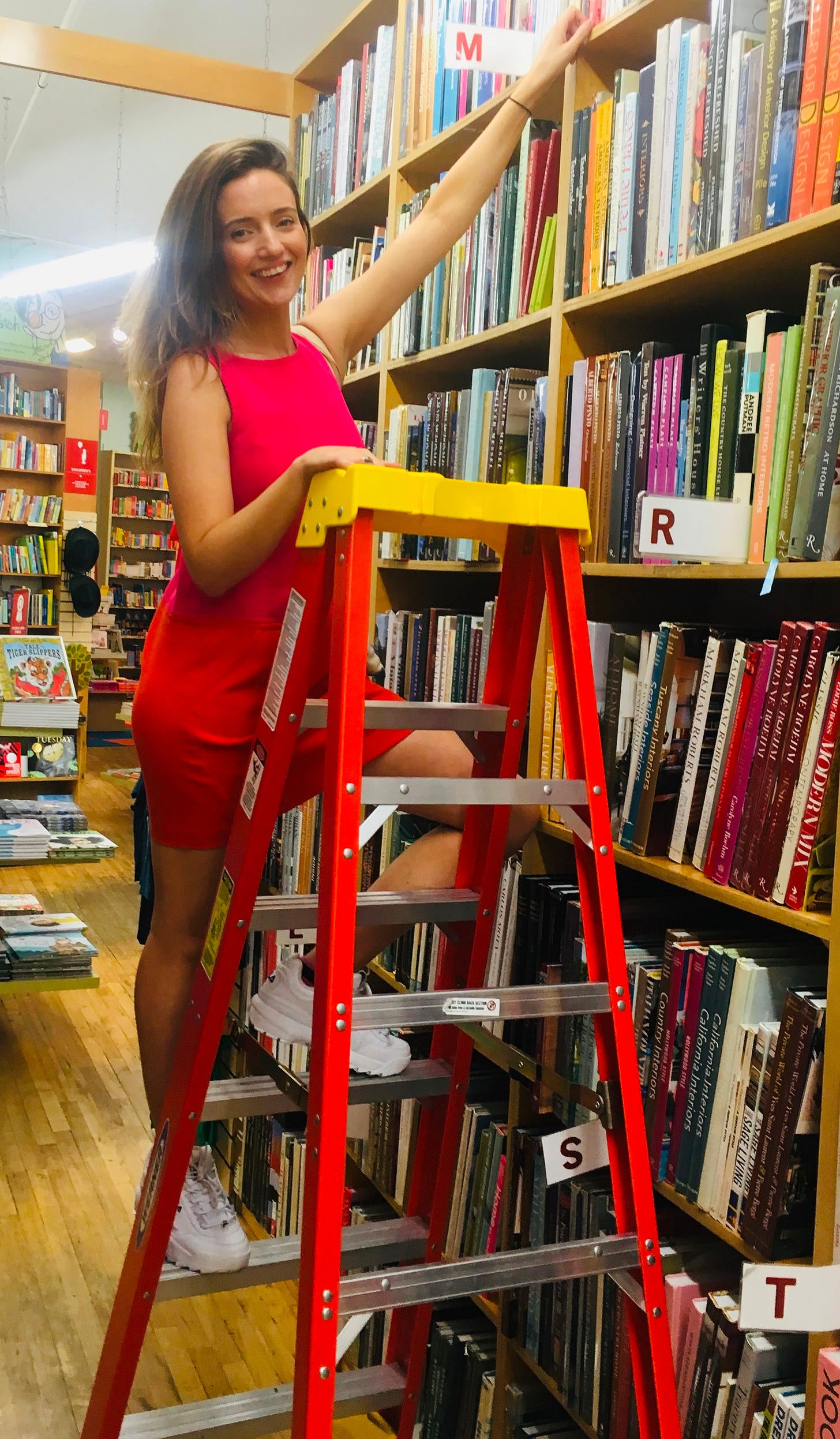

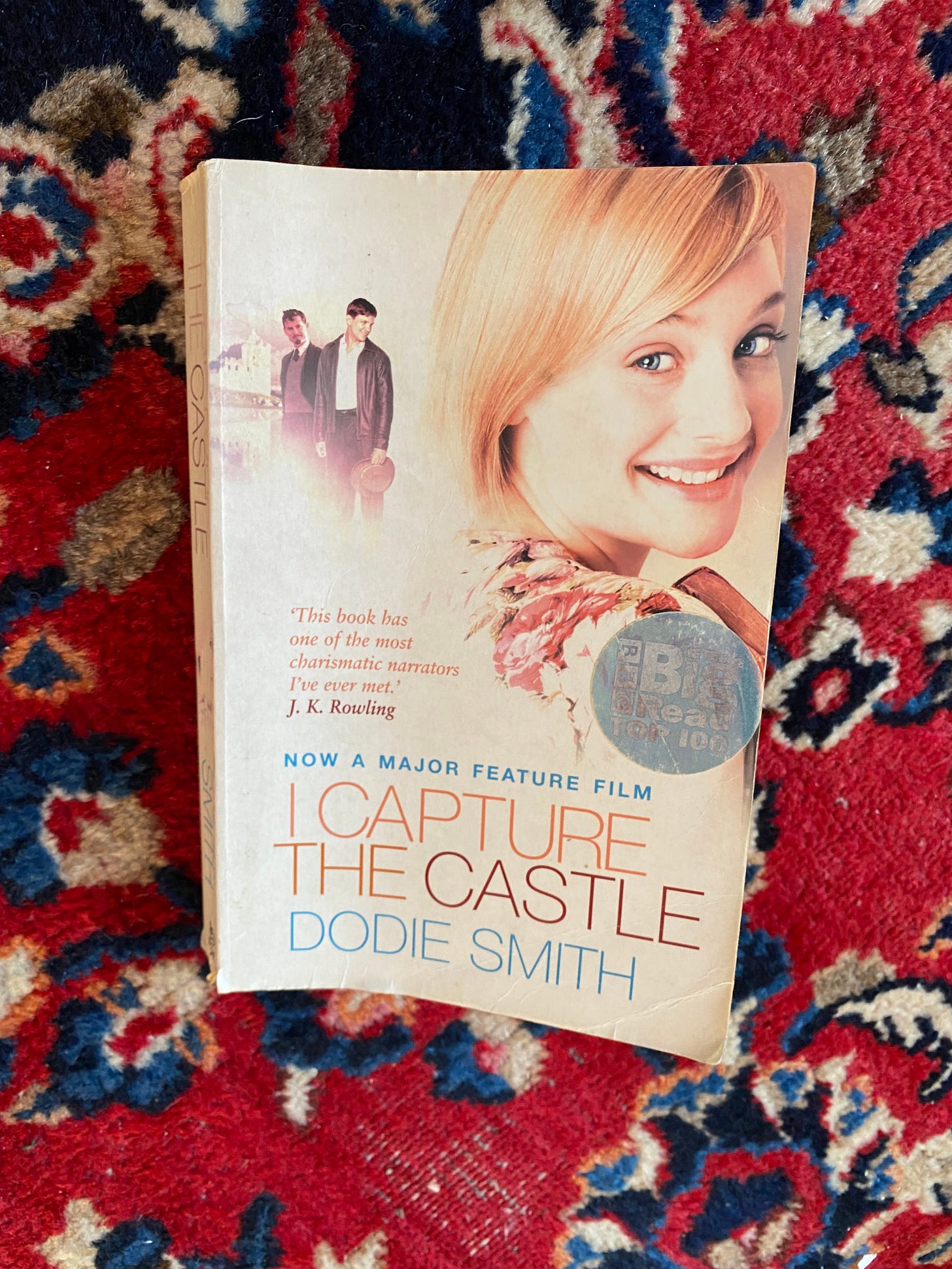
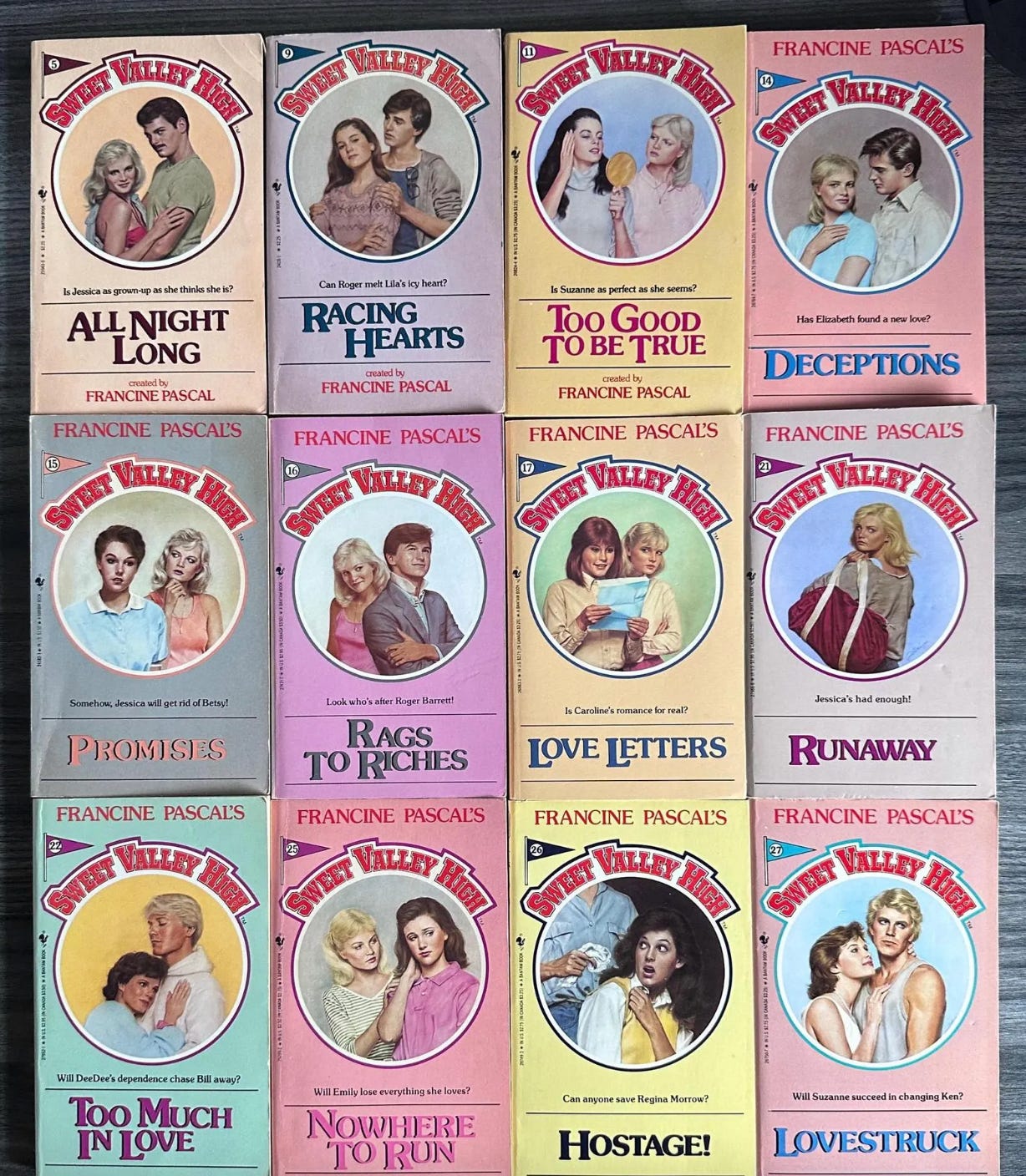
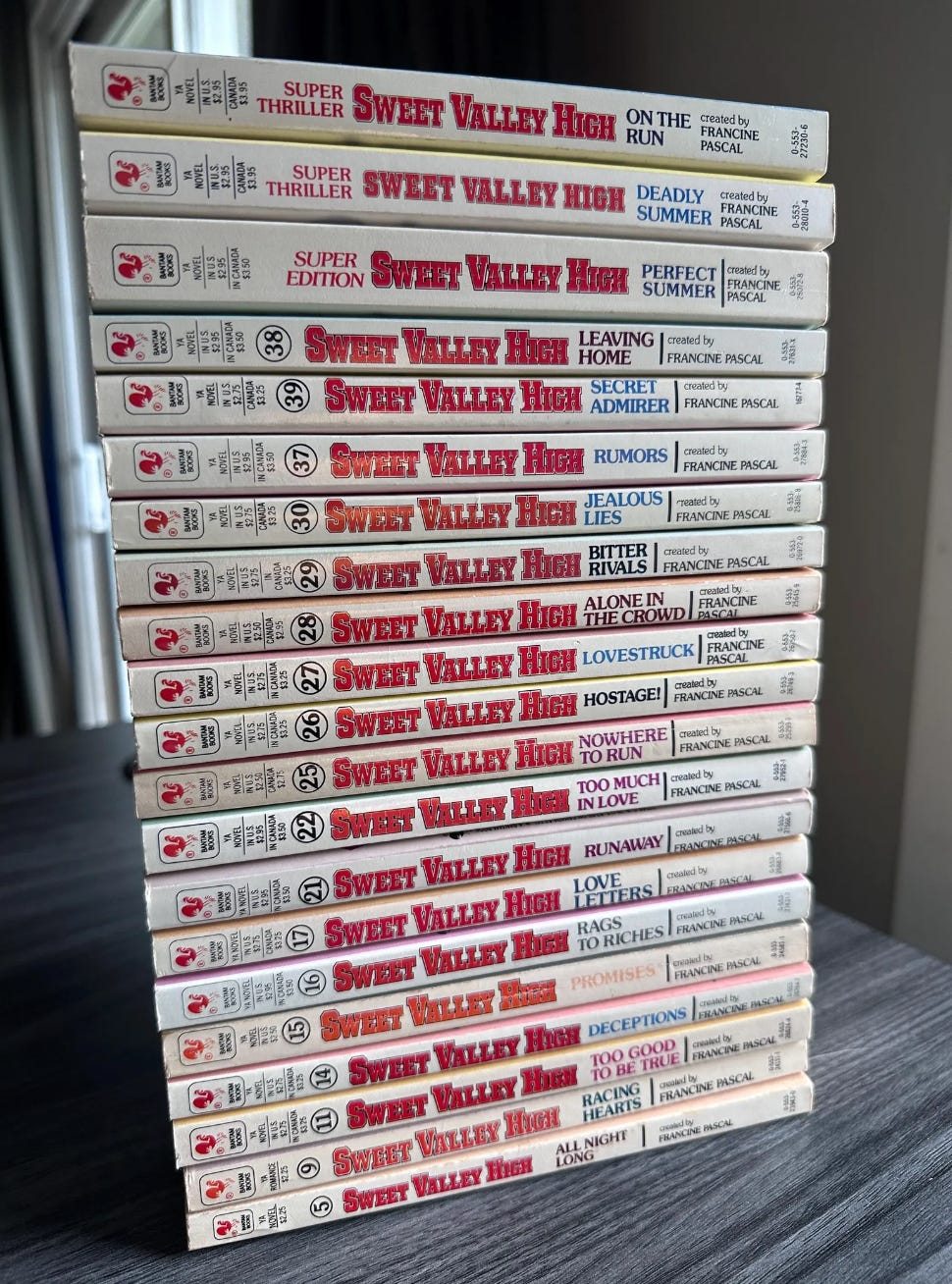
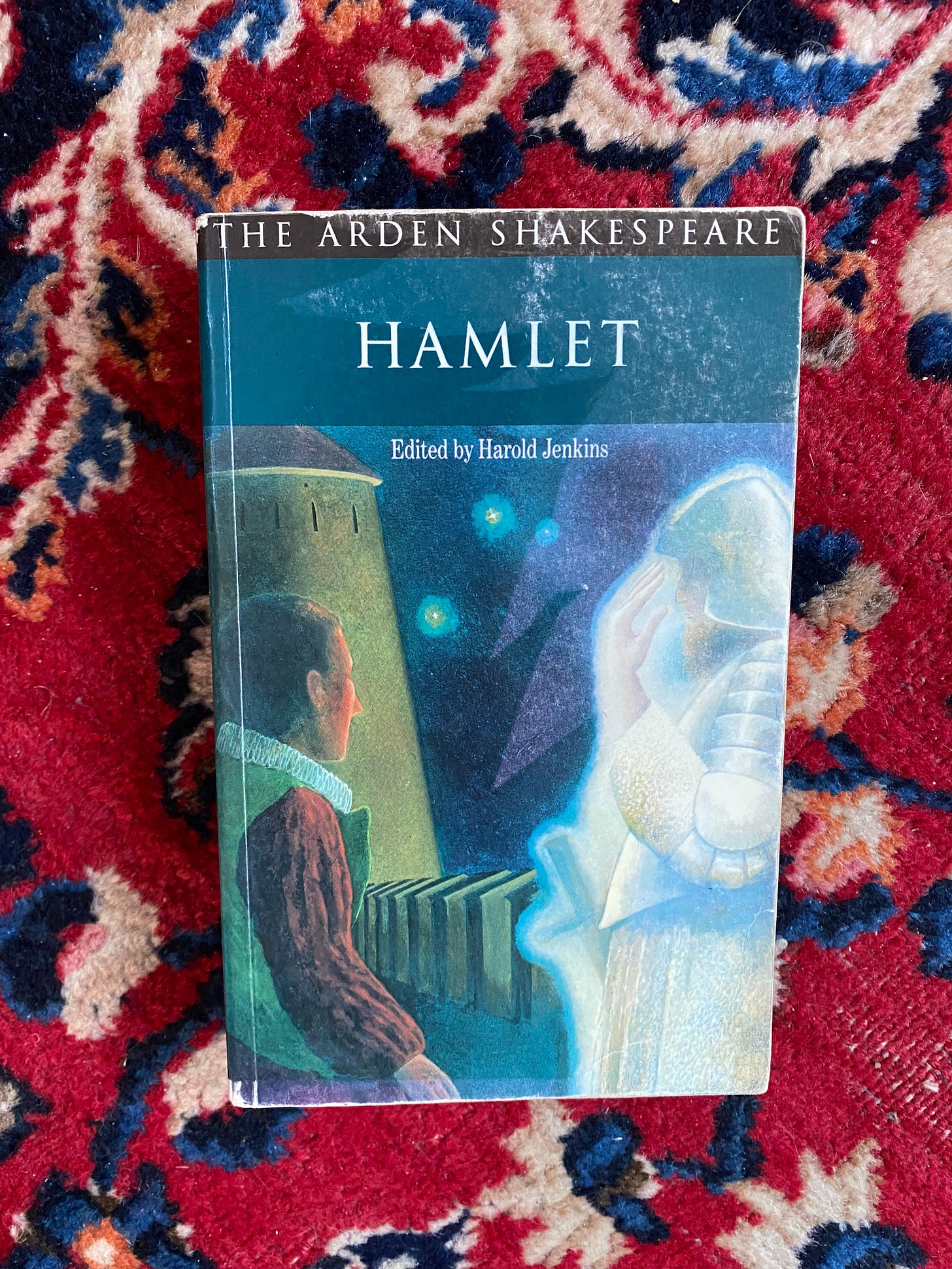
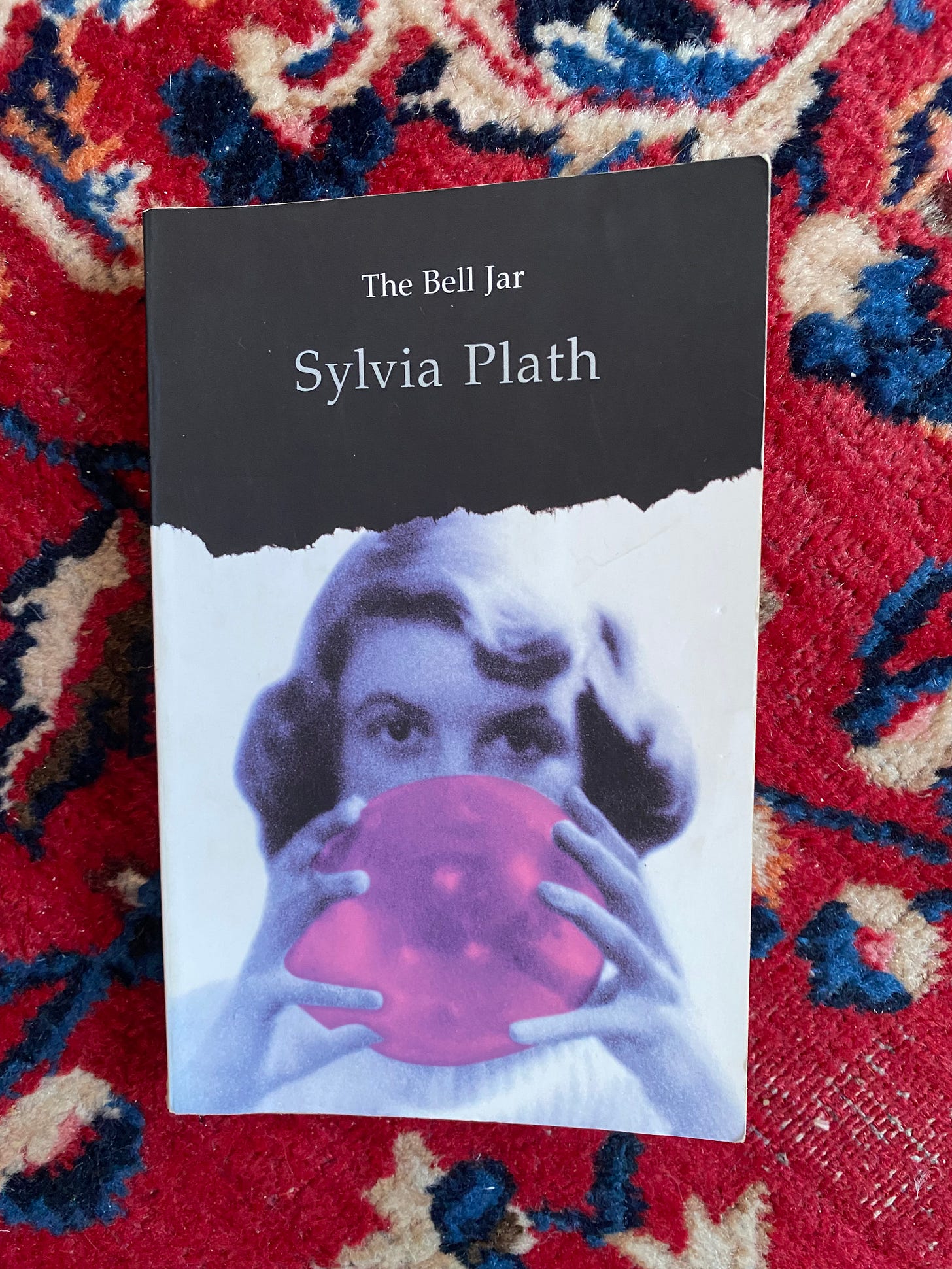
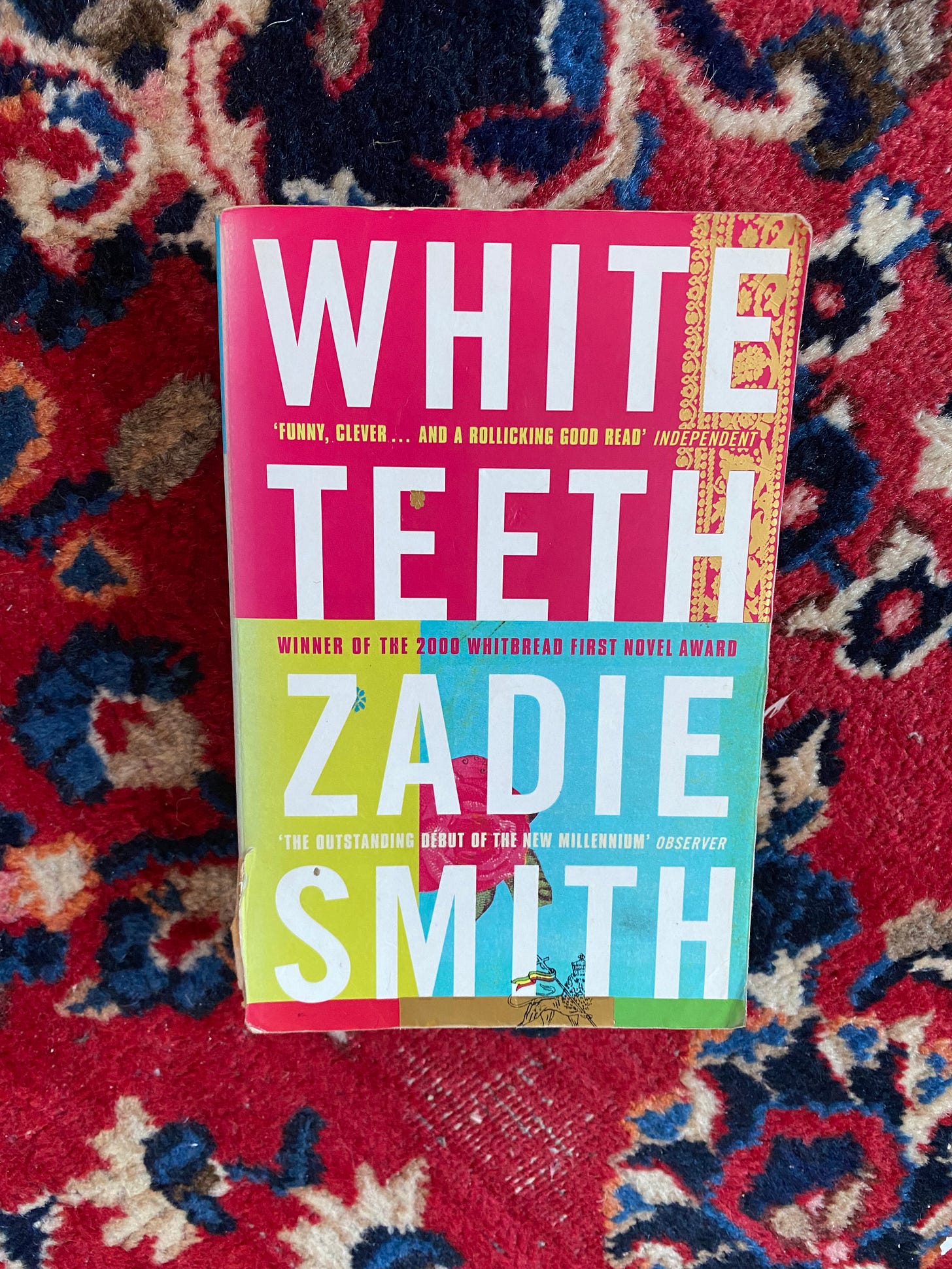



So much of this list resonated with me (a fellow book worm). I grew up reading Enid Blyton and adoring Ballet Shoes, graduating to being obsessed with the Sweet Valley books. I Capture the Castle is possibly my favourite ever book, while The Bell Jar and The Secret History are also up there as firm favourites. You’ve got me thinking about what I would include on my own list!
Sweet. Valley. High. The besttttt... recently the two books that spoke to me were The Nightingale (Kristin Hannah) and All The Colors Of The Dark by Chris Whitaker... omg those books. Time Traveler's Wife and Gone Girl are my 2 other favorites along with Sharp Objects by Flynn as well. To Kill a Mockingbird as a kid and Bridge to Terabithia and Where the Red Fern Grows and one of the Mark Twain books I enjoyed so much in grade school, but possibly because we read it over a week with a snow storm. But SVH solidified my love for reading. I've read 30 of Stephen Kings books as well and all of Elin Hilderbrands 30. I'm on book 130 of the year, but haven't started yet because I'm torn between 2. Lol. ♥️😊♥️ great post! Got me thinking 🤔 and I'll be back with my head in a book in about 30 mins! Tata!